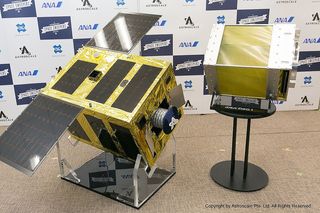The Evolution Of Dumpster Rental: Past, Present, And Future Trends
The Evolution Of Dumpster Rental: Past, Present, And Future Trends
Blog Article
Web Content Writer-Jamison Schwarz
As you consider the advancement of dumpster leasing, consider exactly how each era has actually contributed to shaping the waste management landscape we navigate today. From humble starts in the 1930s to the innovative technologies of the present, the trip of dumpster rental has been marked by technology and adaptation. However what rests on the perspective for this necessary service? The future trends in sustainable methods hold the secret to opening a much more effective and eco-conscious approach to throw away administration. Remain tuned to discover exactly how the dumpster service sector is positioned to embrace a greener tomorrow.
Historic Origins of Dumpster Rental
Discover the origins of dumpster service and exactly how it has actually formed waste administration practices over time.
Dumpster rental traces back to the 1930s when George Roby Dempster, a Tennessee business owner, created the Dempster-Dumpster. This pivotal creation revolutionized garbage disposal by supplying a designated container for accumulating and moving garbage successfully. Initially used for building and construction sites, the principle promptly increased to domestic and industrial setups, leading to the establishment of the initial dumpster rental solutions in the 1960s.
Throughout the years, dumpster service has significantly influenced waste monitoring practices by promoting convenience, sustainability, and company. The capacity to centralize waste in devoted containers simplifies collection processes, lowers littering, and improves recycling initiatives. Furthermore, dumpster rental motivates people and organizations to adopt liable waste disposal behaviors, adding to cleaner environments and reduced ecological impact.
Modern Innovations in Waste Monitoring
Incorporating advanced technologies and sustainable practices has actually reinvented waste monitoring in the last few years, enhancing effectiveness and environmental influence. One substantial innovation is making use of wise waste administration systems that employ sensing units to monitor waste levels in real-time, optimizing collection paths and schedules. These systems help in reducing unneeded pick-ups, reducing gas consumption and exhausts.
One more contemporary innovation is the implementation of waste-to-energy facilities, where non-recyclable waste is exchanged energy via processes like incineration or anaerobic food digestion. This not only decreases the quantity of waste predestined for landfills yet additionally generates renewable resource.
Additionally, the introduction of single-stream recycling has simplified the recycling procedure for customers, resulting in higher involvement prices and greater diversion from land fills. In addition, innovations in composting modern technologies have made organic waste management a lot more effective, transforming food scraps and lawn waste into beneficial garden compost for farming use.
Anticipated Trends in Lasting Practices
Sustainable waste management methods are developing quickly to satisfy the enhancing needs for environmental obligation and resource effectiveness. As you aim to the future, several key trends are anticipated to form the market. One significant emphasis will certainly be on reducing waste generation through better item style and packaging. Companies will increasingly adopt round economic situation principles, intending to decrease waste and take full advantage of the life expectancy of products.
An additional trend to expect is the rise of innovative reusing technologies. Advancements in chemical recycling and pyrolysis are anticipated to supply brand-new options for managing complicated or infected waste streams that standard recycling approaches struggle to process efficiently. These modern technologies have the prospective to transform how we manage waste, turning difficult-to-recycle materials right into beneficial sources.
Additionally, expect to see a greater focus on organic waste diversion. Composting please click the up coming website page and anaerobic food digestion facilities will certainly come to be extra extensive as communities make every effort to minimize the quantity of raw material sent out to land fills. By investing in please click the next page , we can relocate in the direction of a much more round and resource-efficient waste administration system.
Final thought
To conclude, dumpster rental has come a long way given that its inception in the 1930s. From its simple starts on building and construction sites to its extensive usage in residential and business setups, the industry has continuously evolved to satisfy the transforming requirements of waste administration.
With the introduction of contemporary developments and a concentrate on sustainable techniques, the future of dumpster service looks appealing, with a strong focus on performance, environmental responsibility, and innovation.
